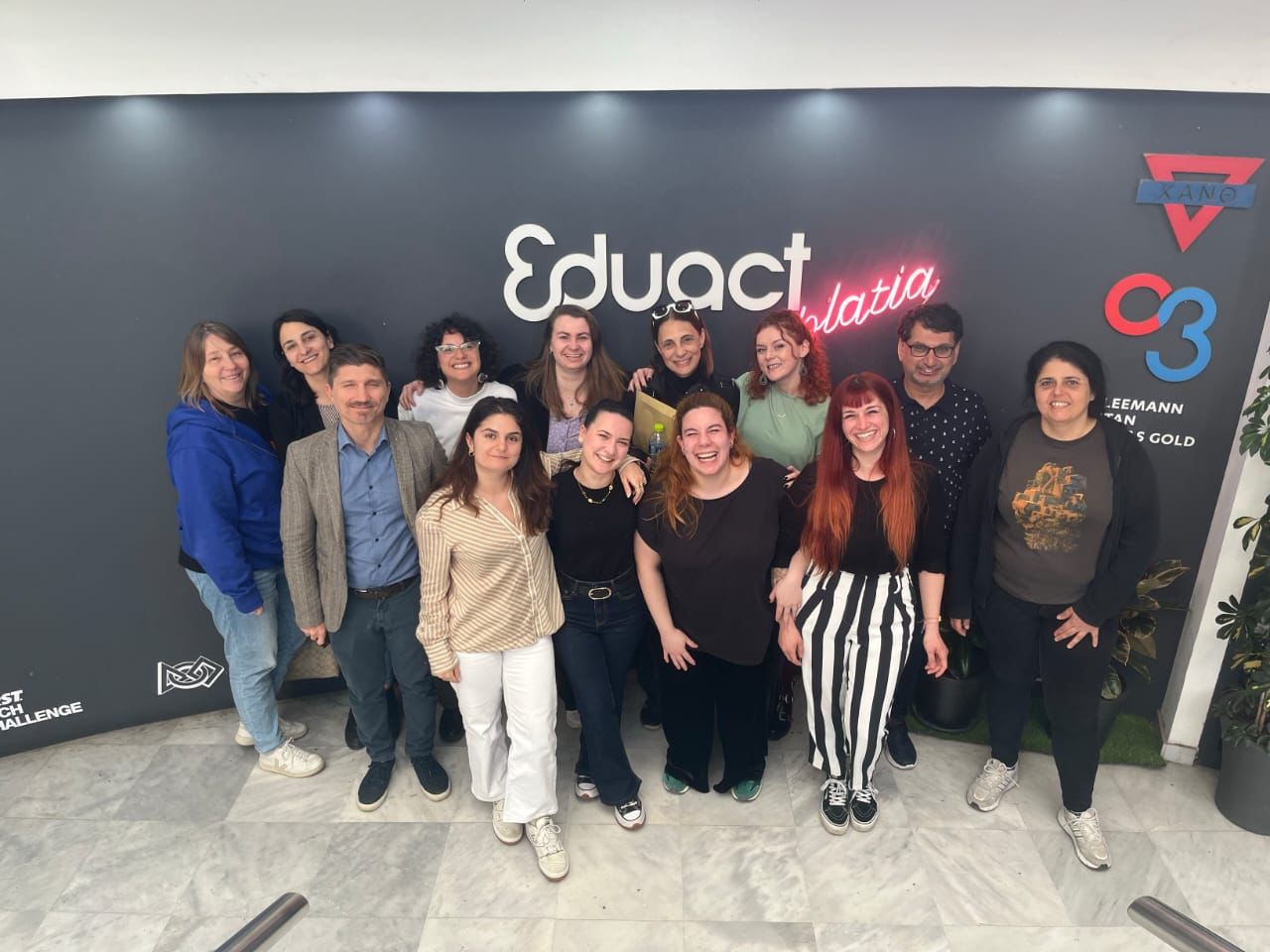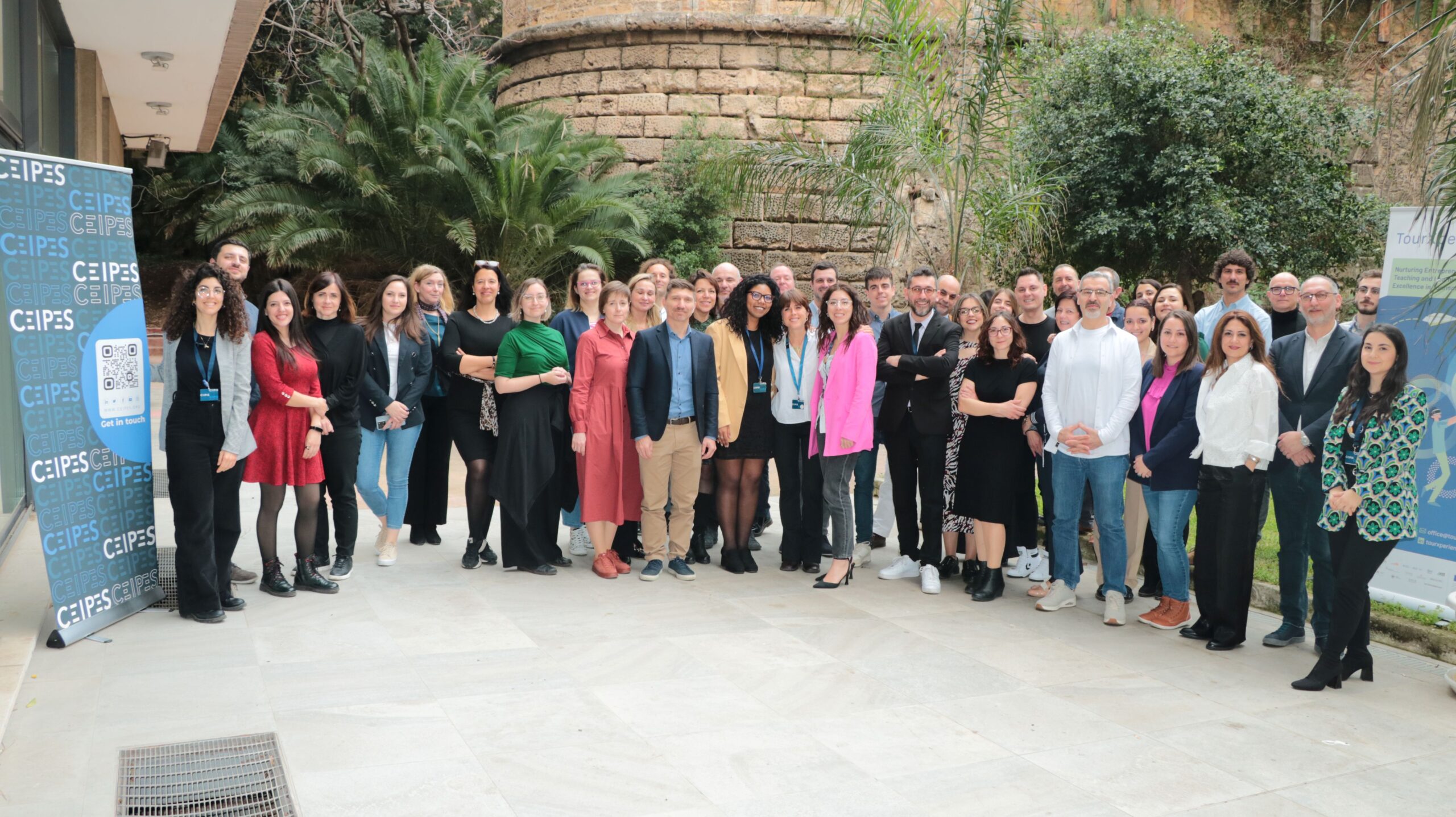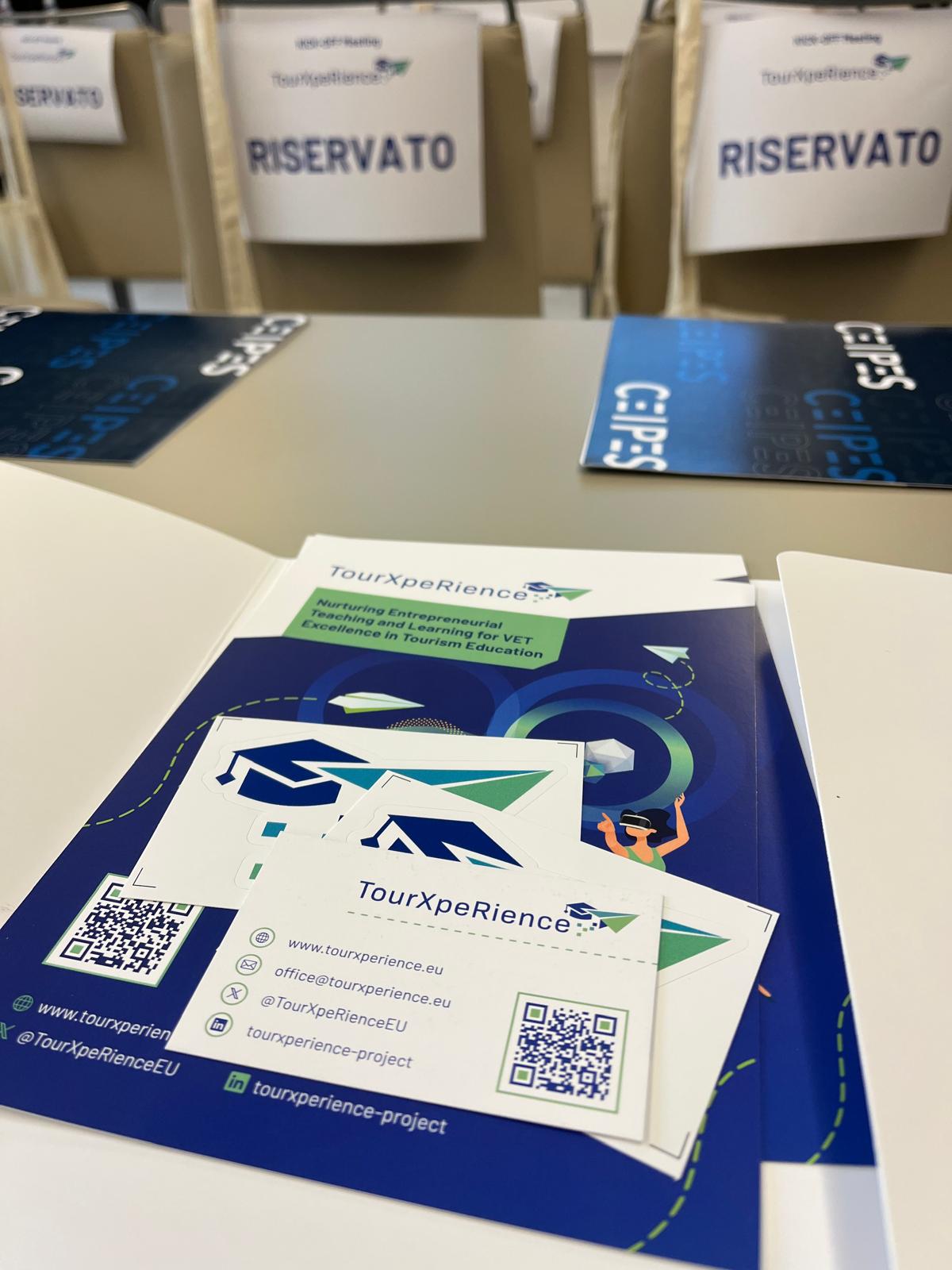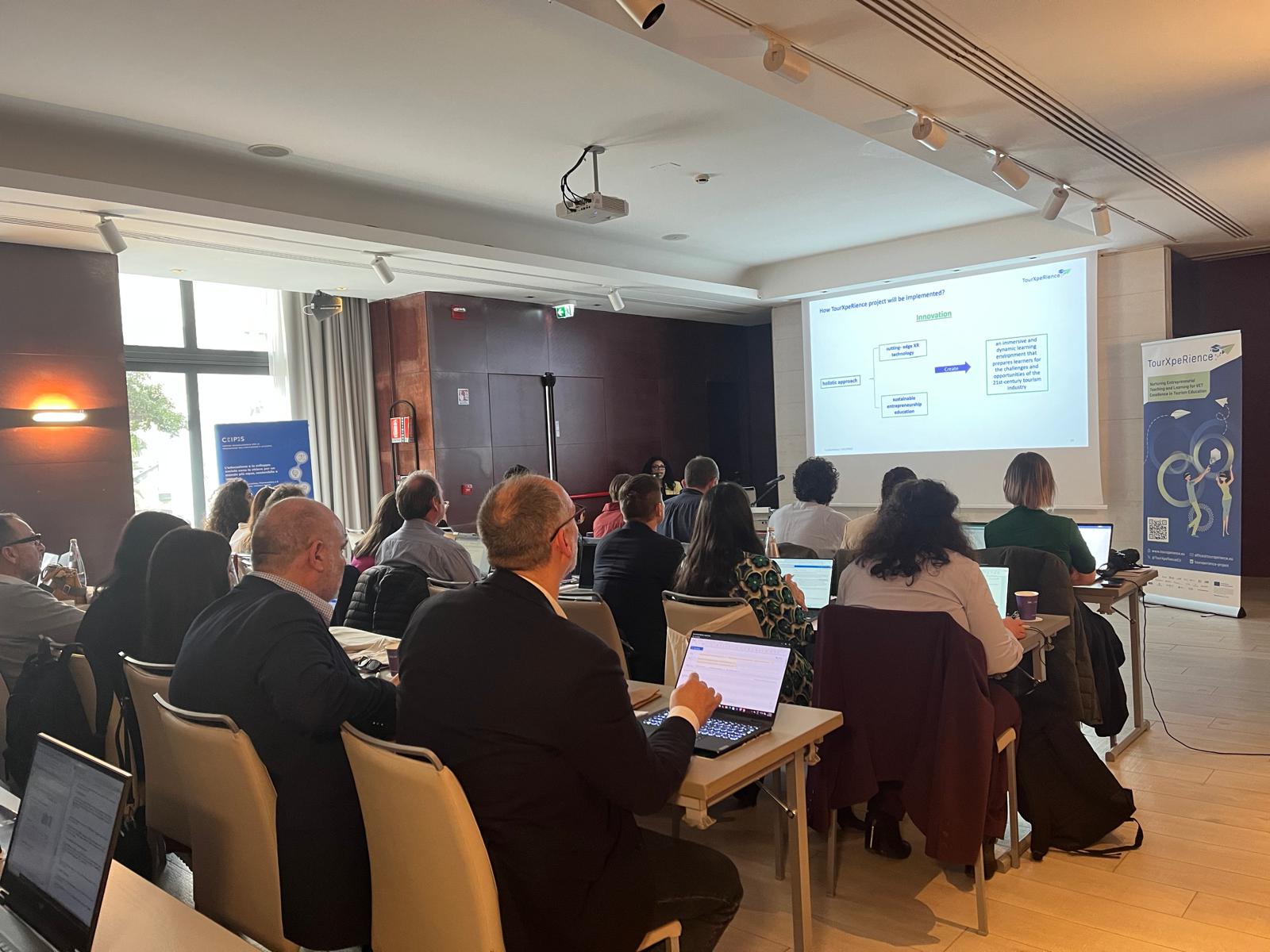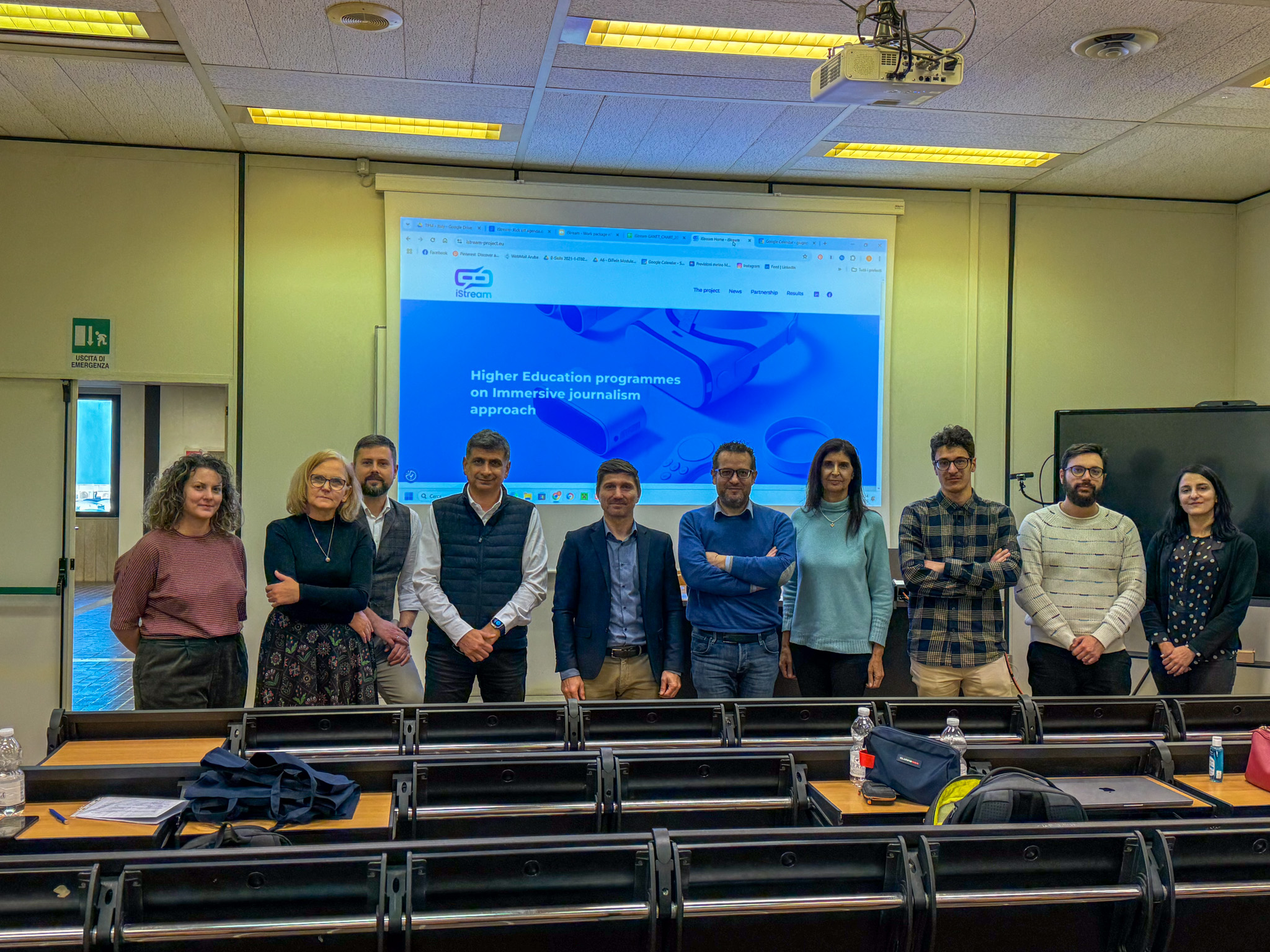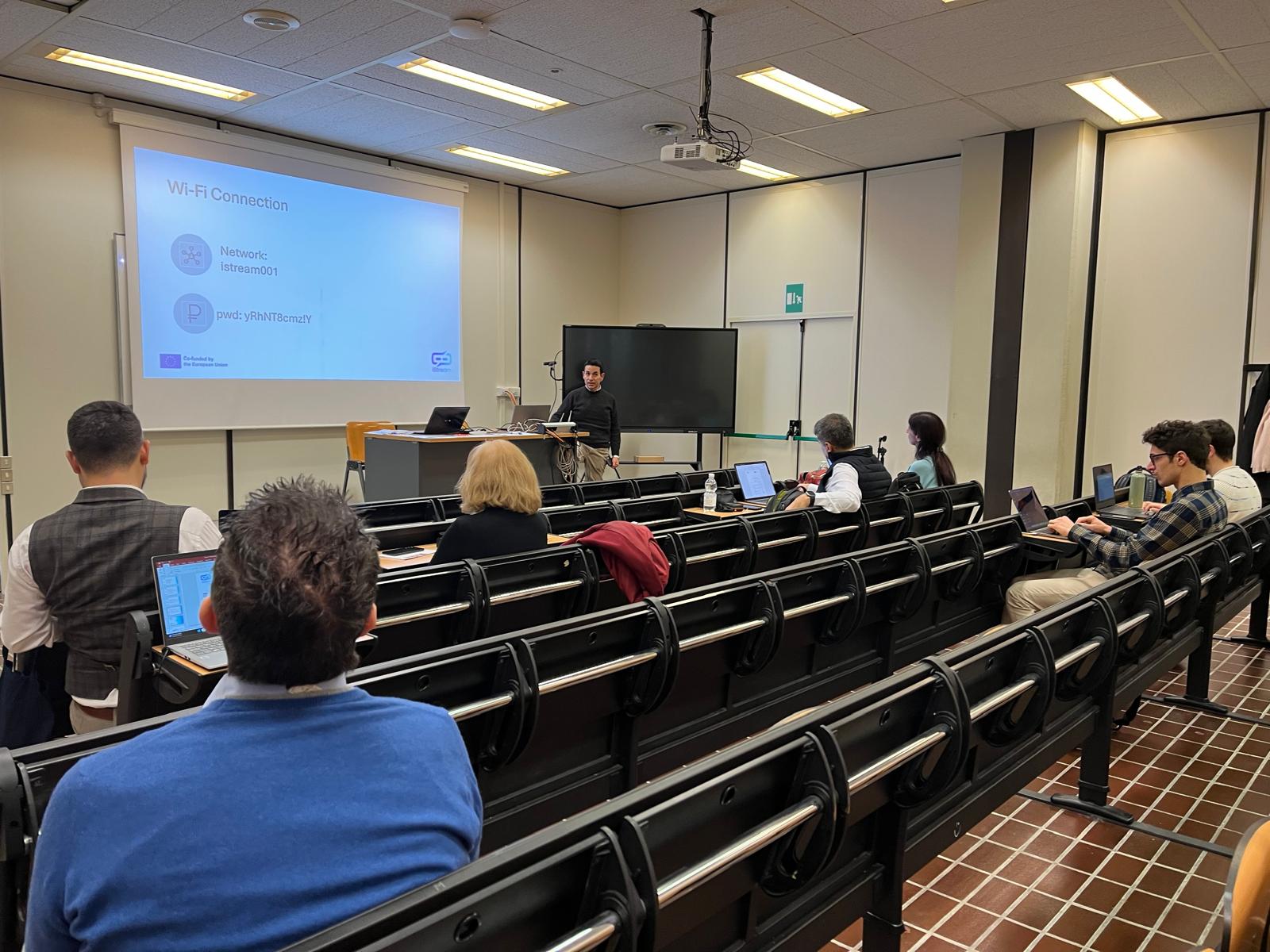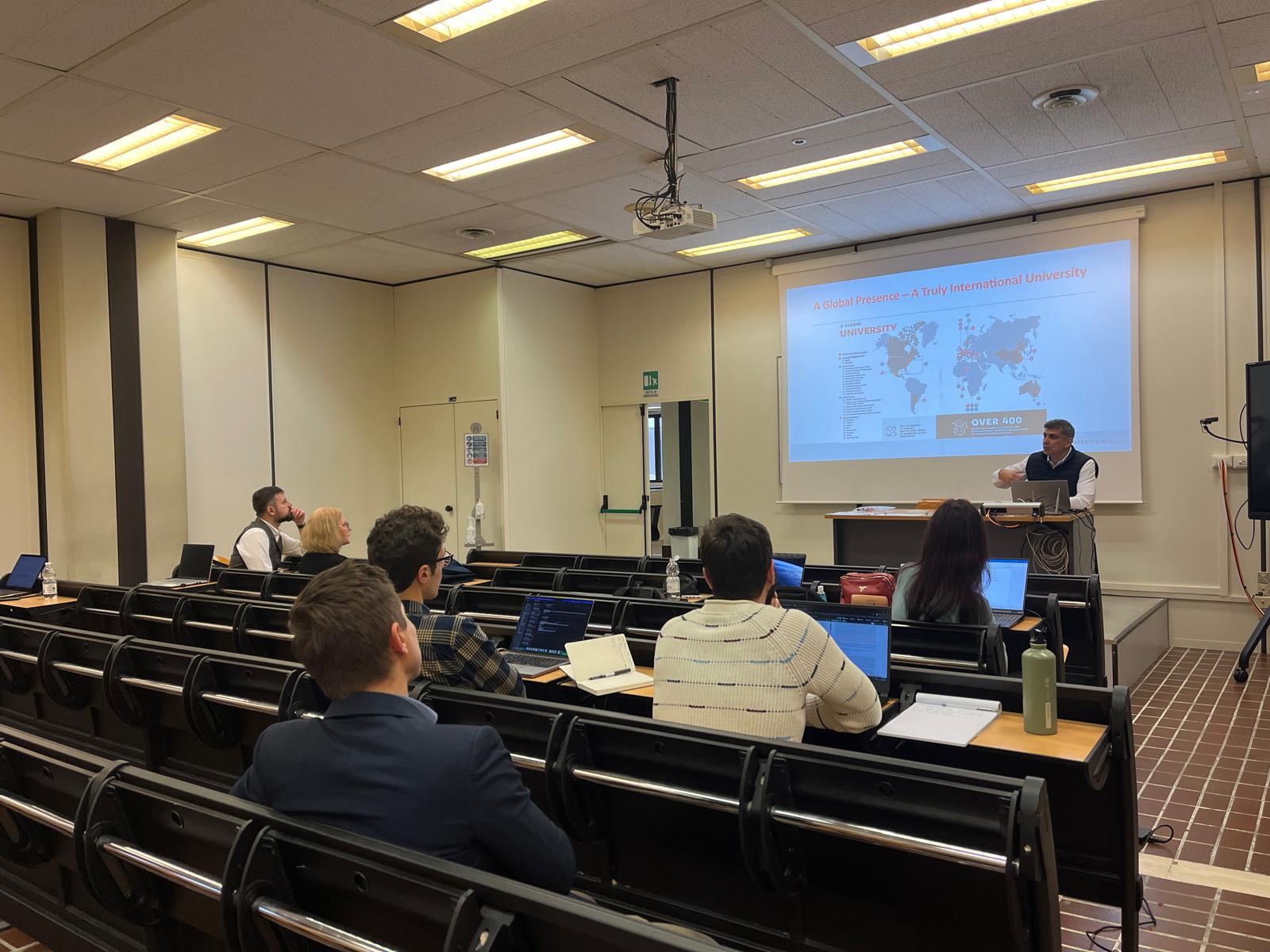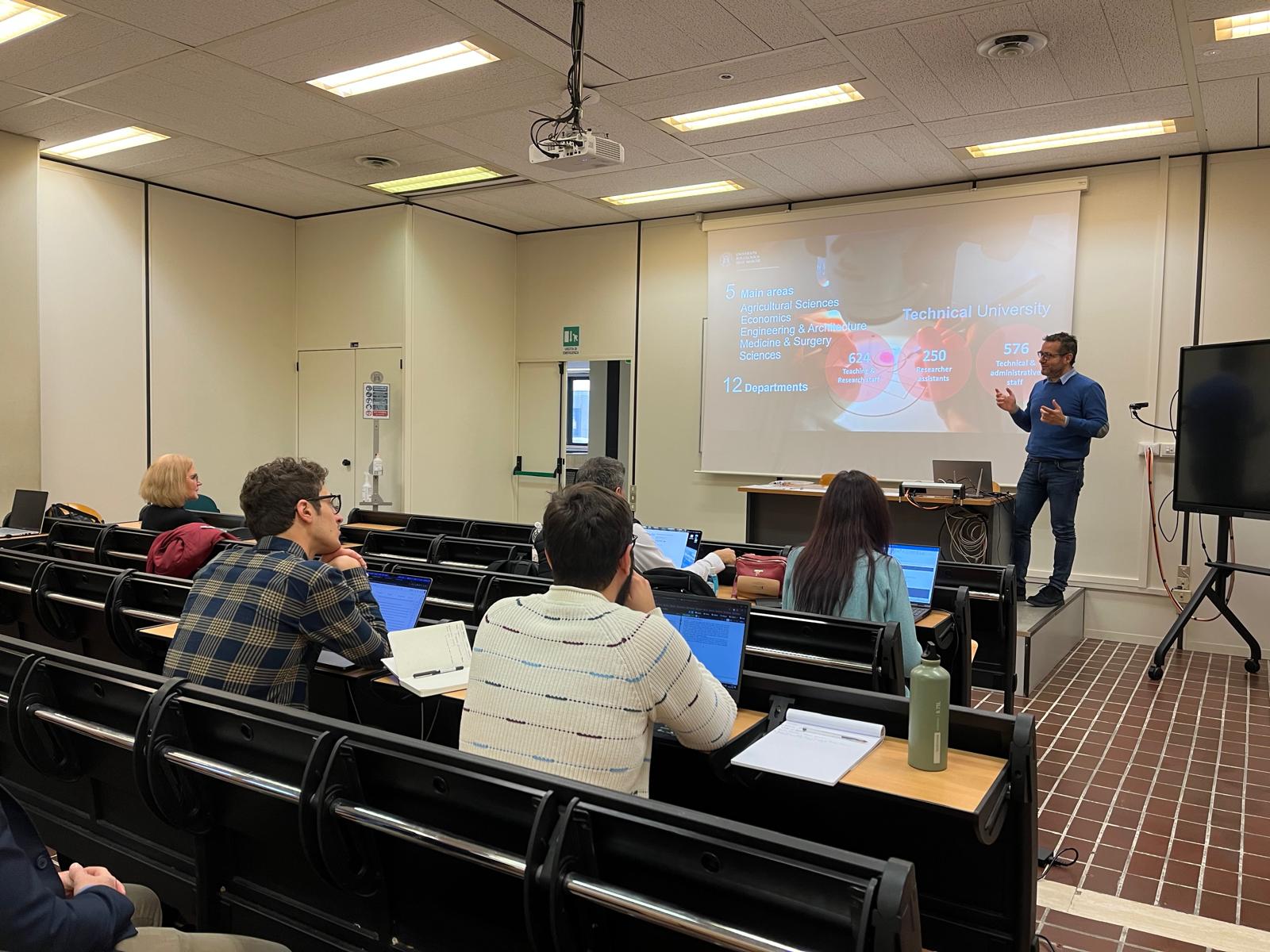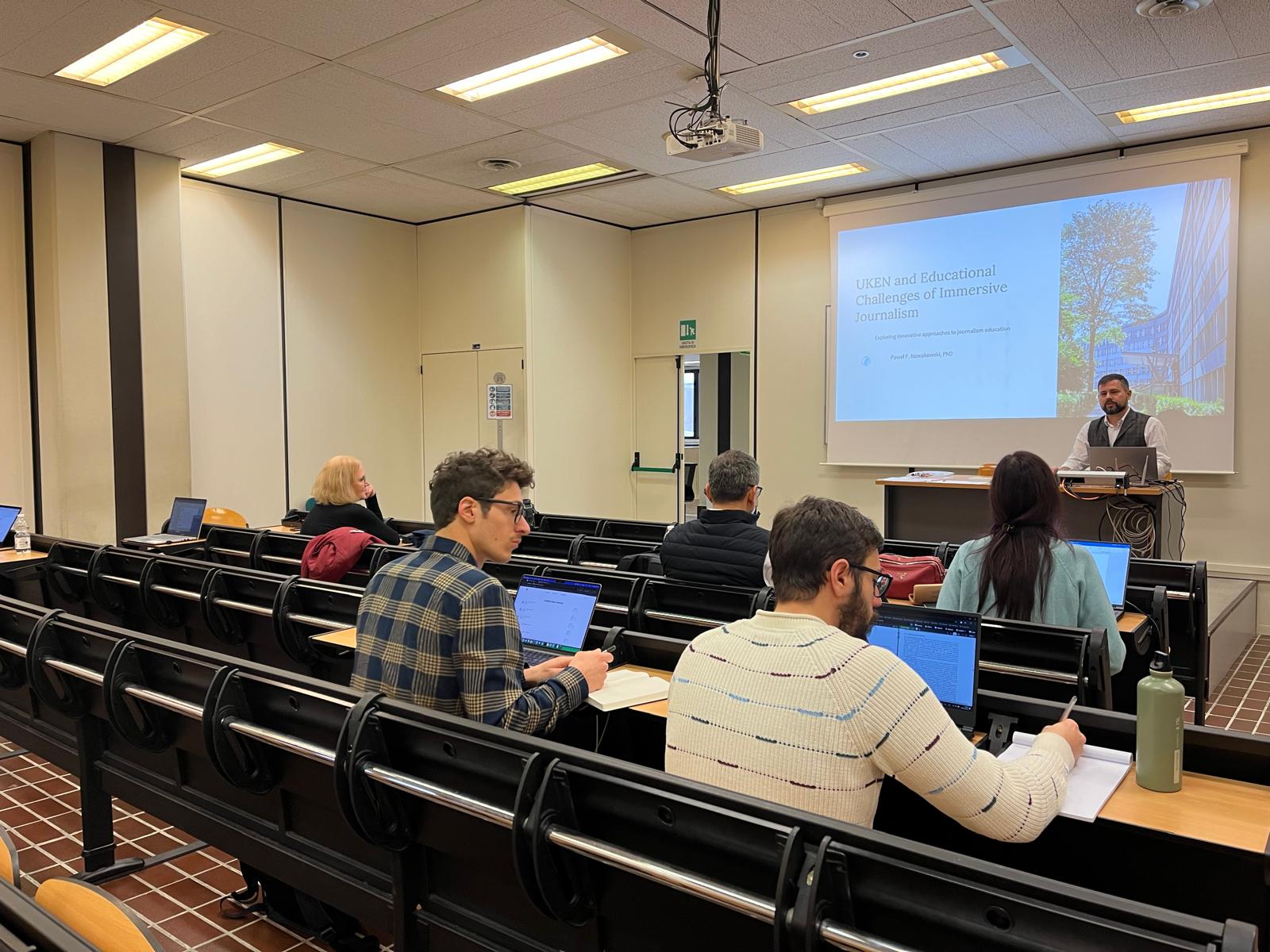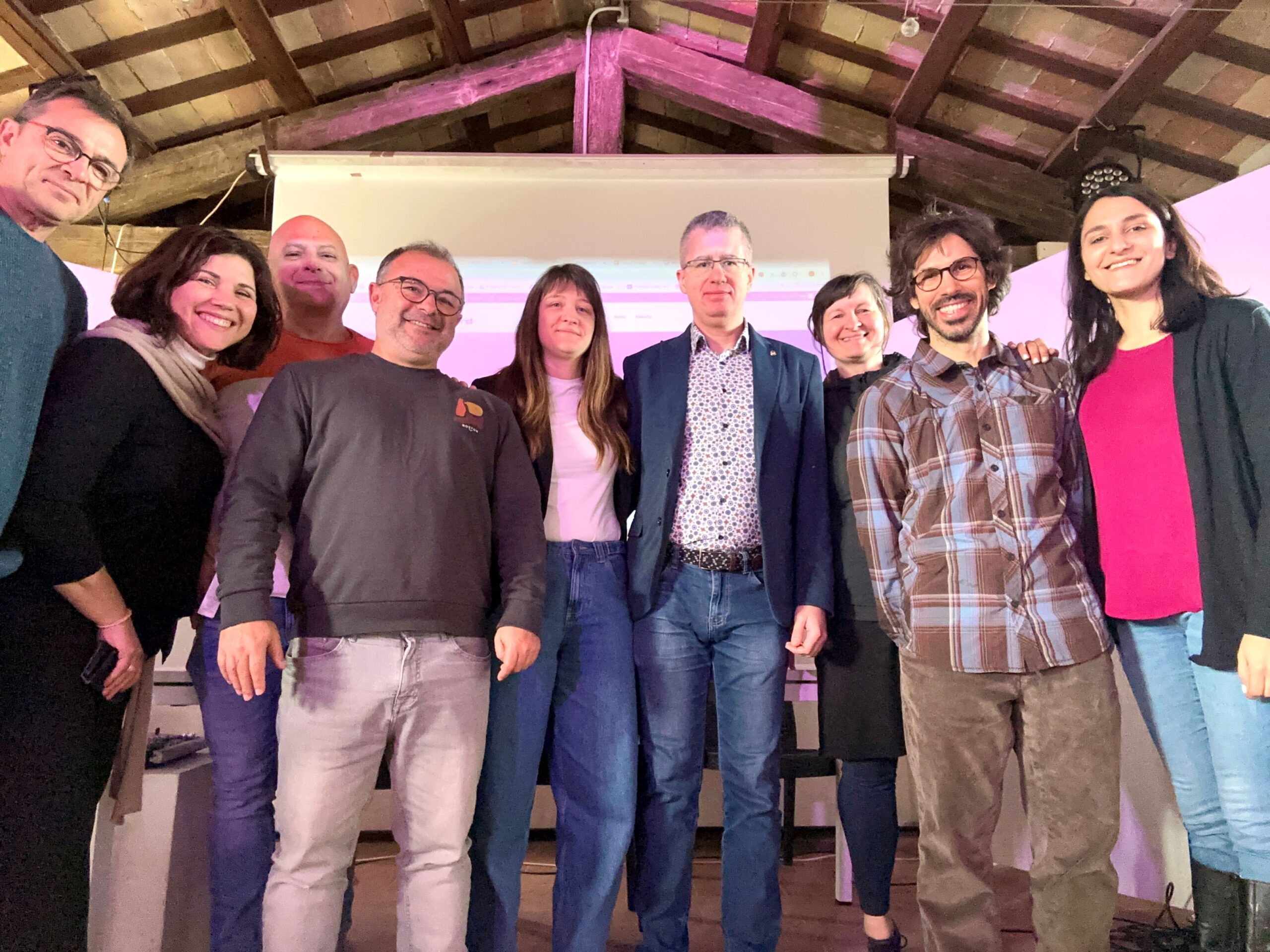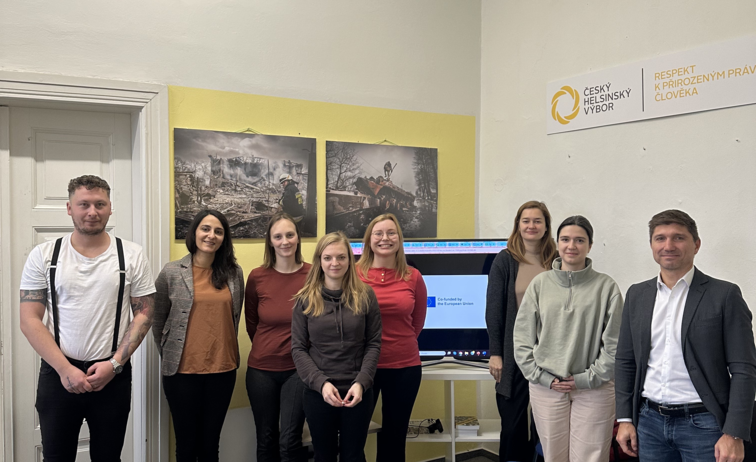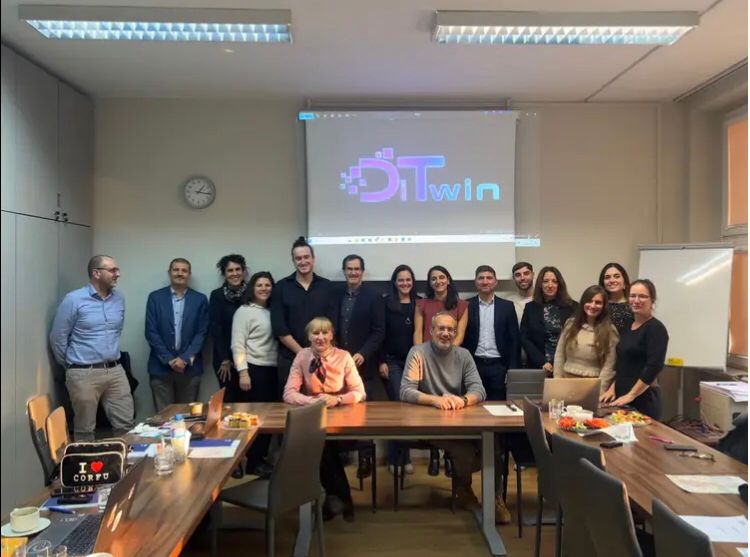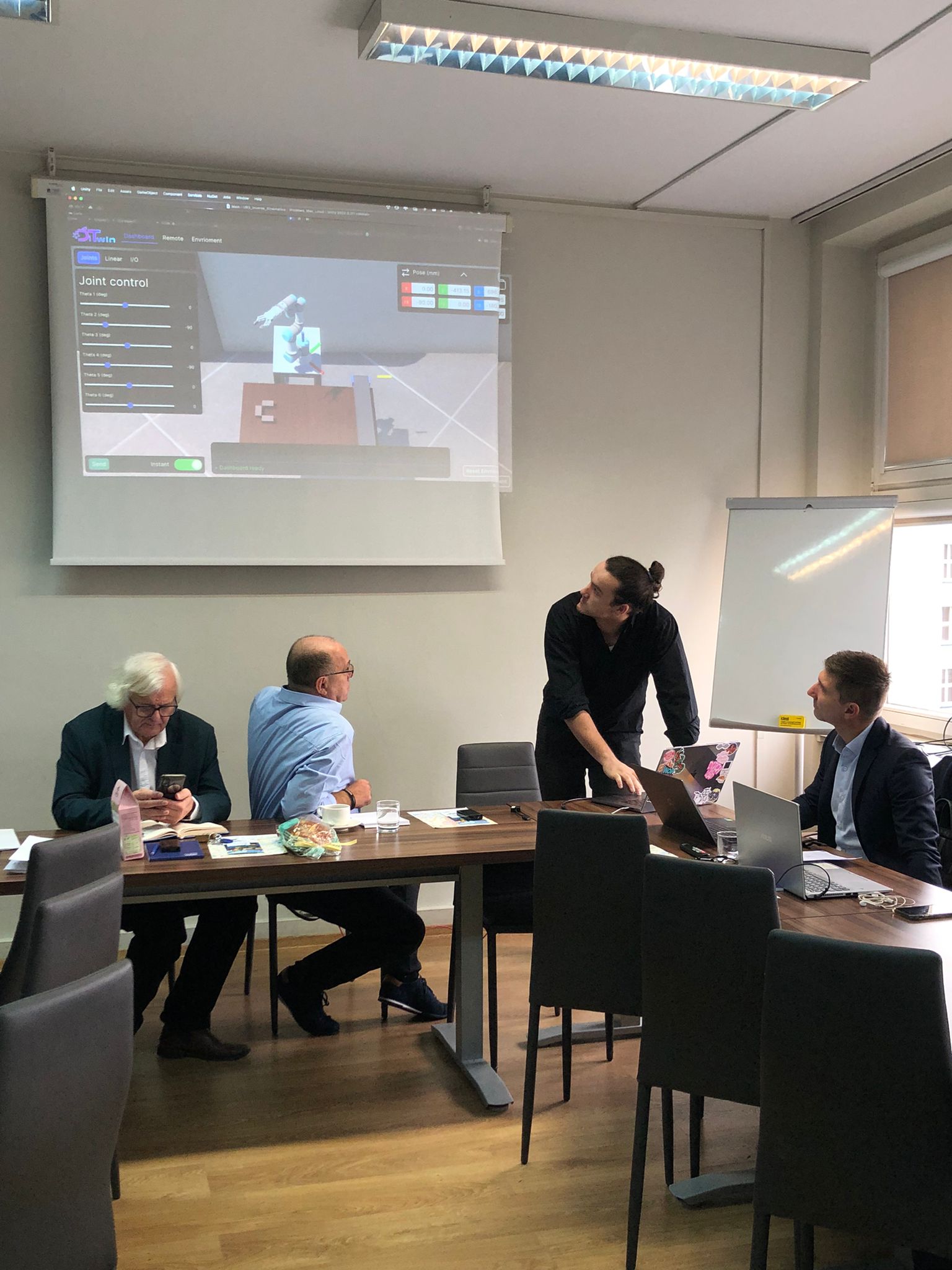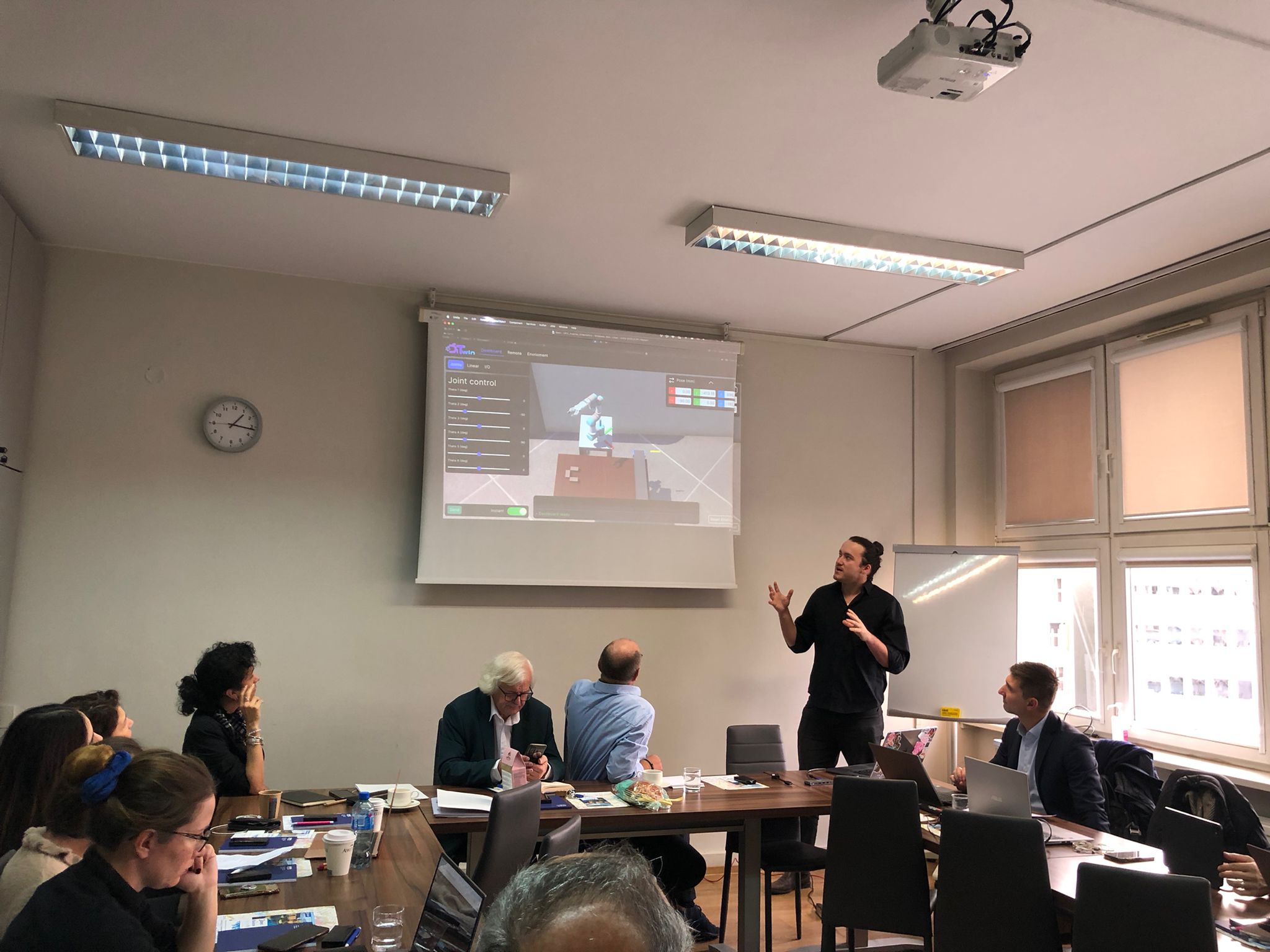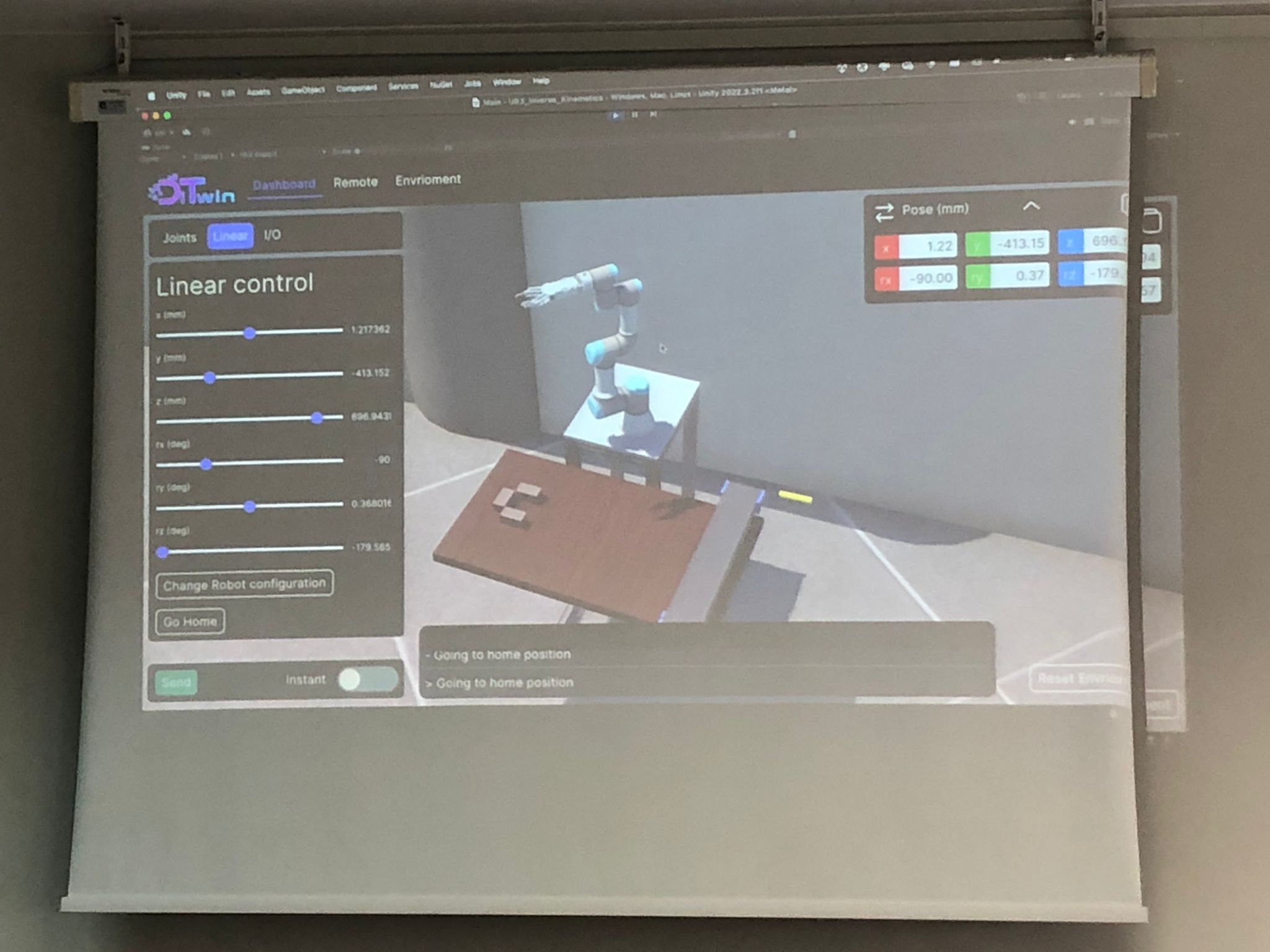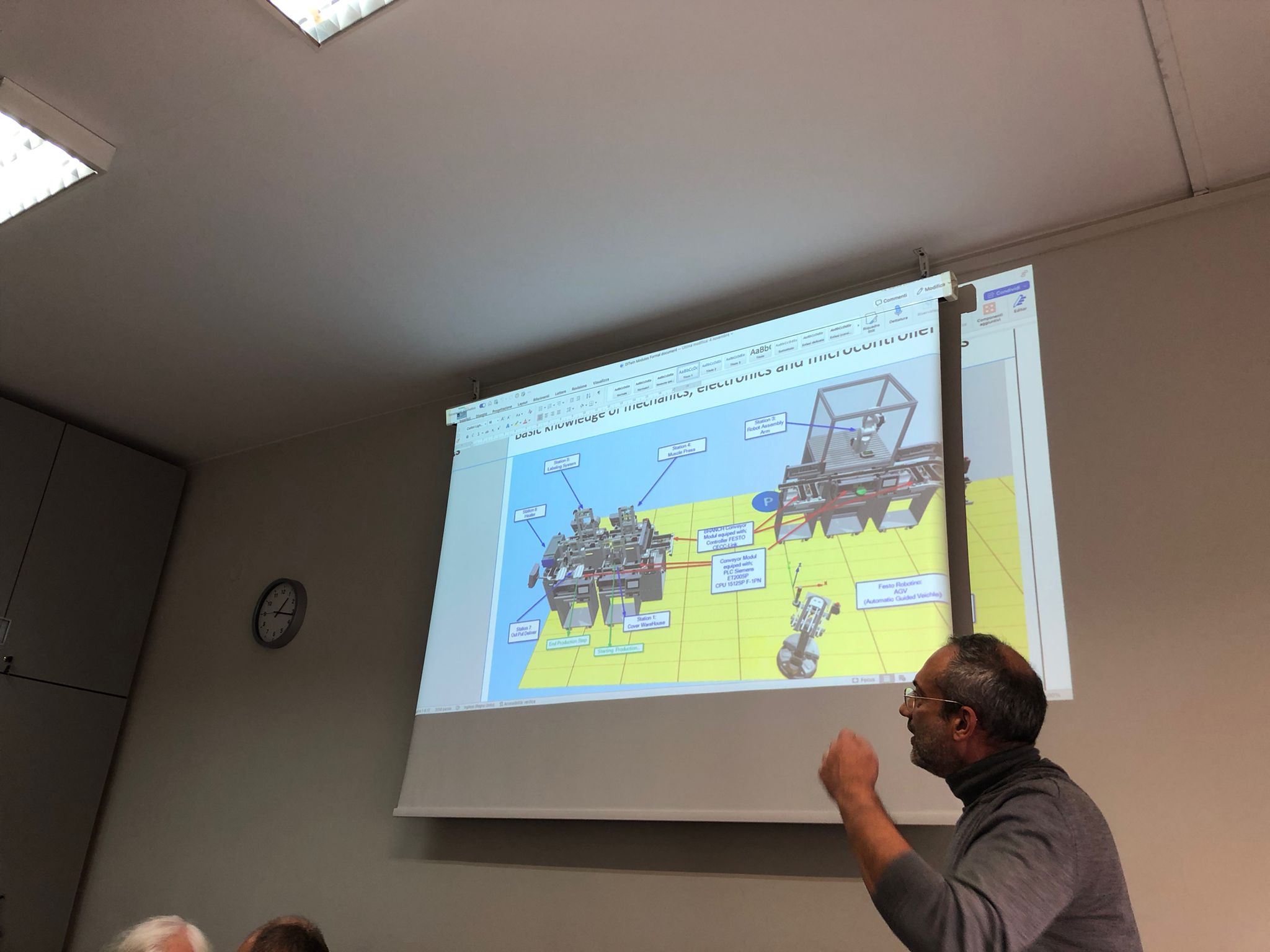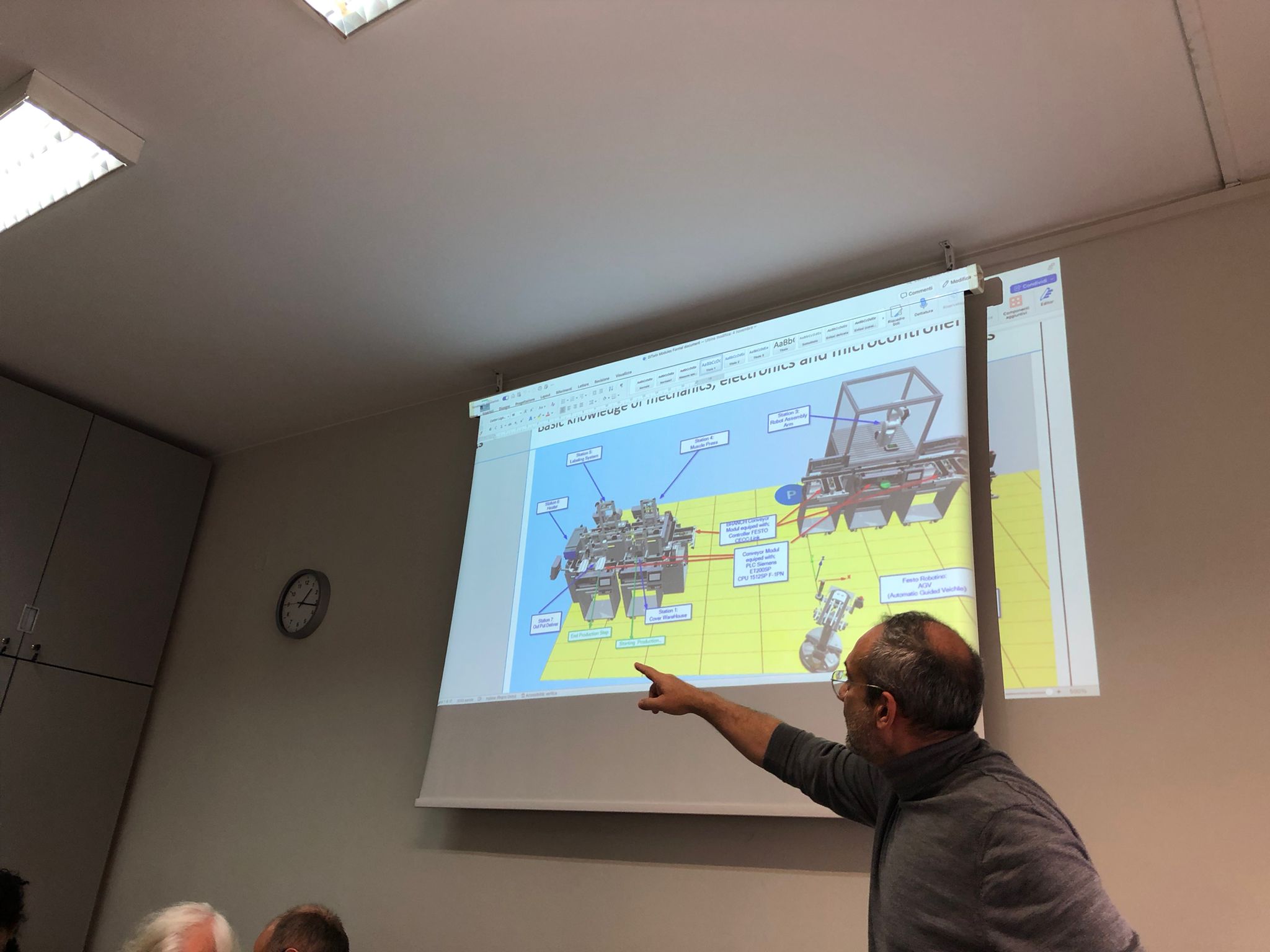Girls SELF-ESTEAM - Last Transational Project Meeting
The second and last transnational meeting of the Girls Self- ESTEAM project, coordinated by MasterPeace and hosted by the EDUACT, was held in Thessaloniki on March 17th and 18th.
All project partners participated in the two-day meeting, collaborating on key topics from the agenda. Discussions covered project activities, including Management, Dissemination, and Quality Assurance.
The team also focused on:
- the state-of-the-art of WP2 (Teachers Curriculum and Interactive Modules production), and the upcoming activities within this work package
- the state-of-the-art of WP3 (Female Role Model Interactive e-MuseumTutorial production), and the upcoming activities within this work package
- the start of WP4 (Capacity Building Camps and Festival).
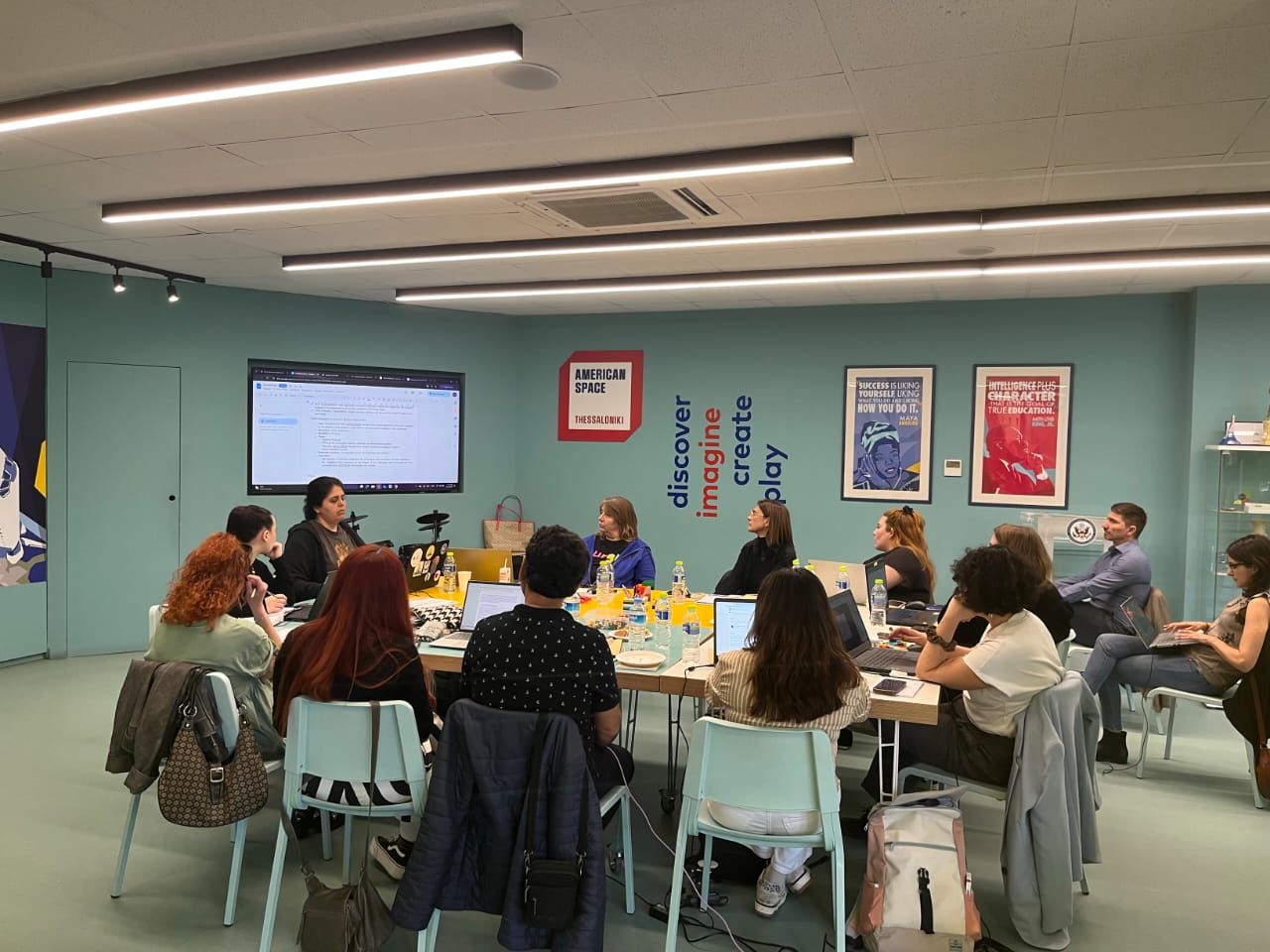
Regarding the Teacher Training Event, it was decided that local training sessions will be organized in national languages to prepare teachers. A joint online training session for all 6 teachers per partner will take place on 7 May 2025, from 13:00 to 15:00 CET via Zoom.
The Train-the-Trainer structure will involve local training (either online or in-person) to guide teachers through the platform and modules. Teachers are encouraged to review materials in advance and prepare questions for the online session.
Regarding the implementation with Students, it was noted that the implementation phase will ideally begin in May or June, following the training. Each partner will aim to reach around 120 students, totaling approximately 800 students.
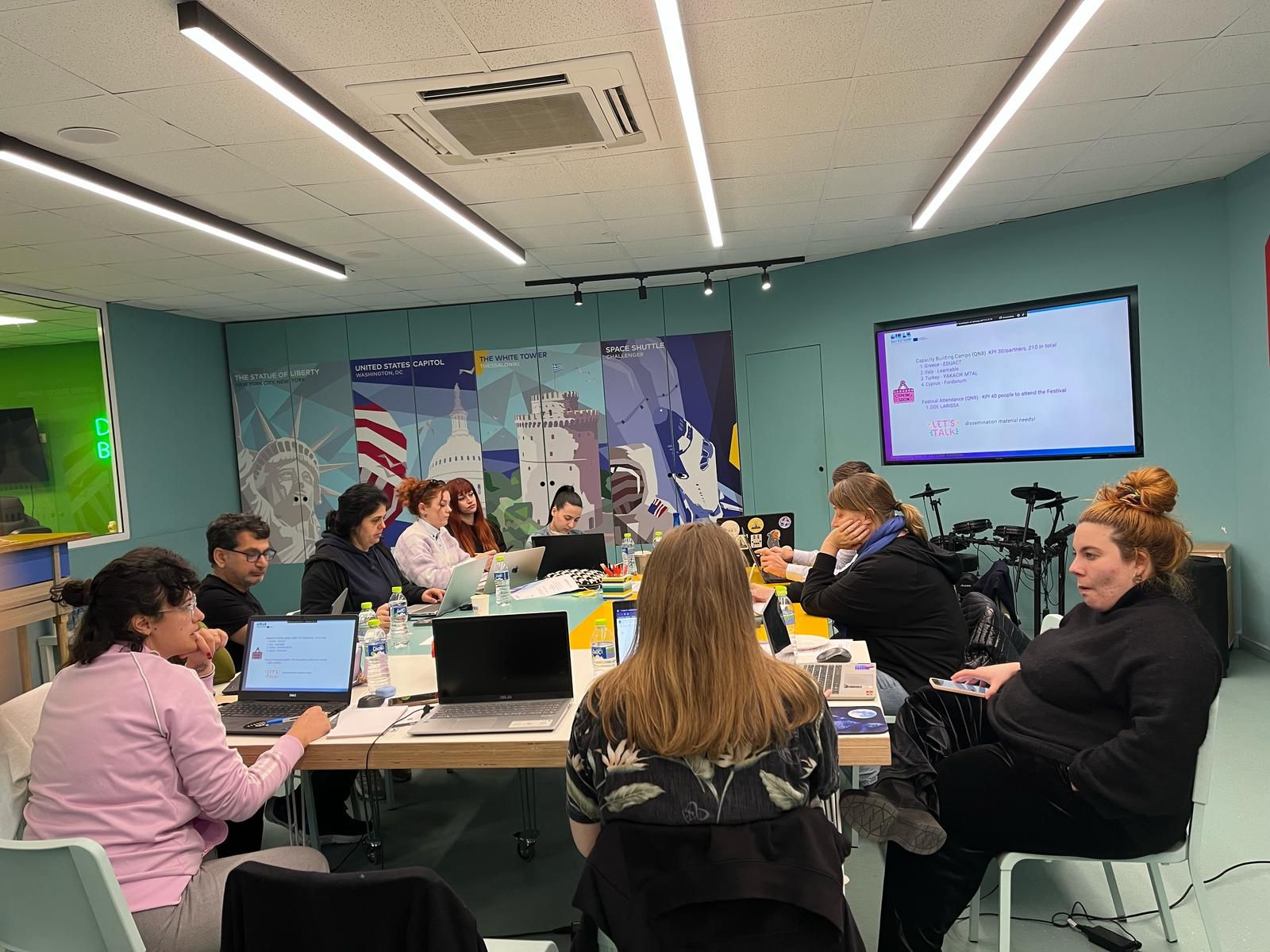
Regarding the capacity building to be organized between June and October 2025, a brainstorming session was held in pairs where partners shared their plans and timelines. The key highlights are as follows:
- Turkey: The capacity-building camp will take place in June, and it will be combined with a local conference.
- Italy: The event will be held through existing school counseling hubs.
- Greece: The camp will be combined with a robotics camp.
- Netherlands: The team is planning a career fair-style event, potentially hosted at Da Vinci College or Younity Utrecht.
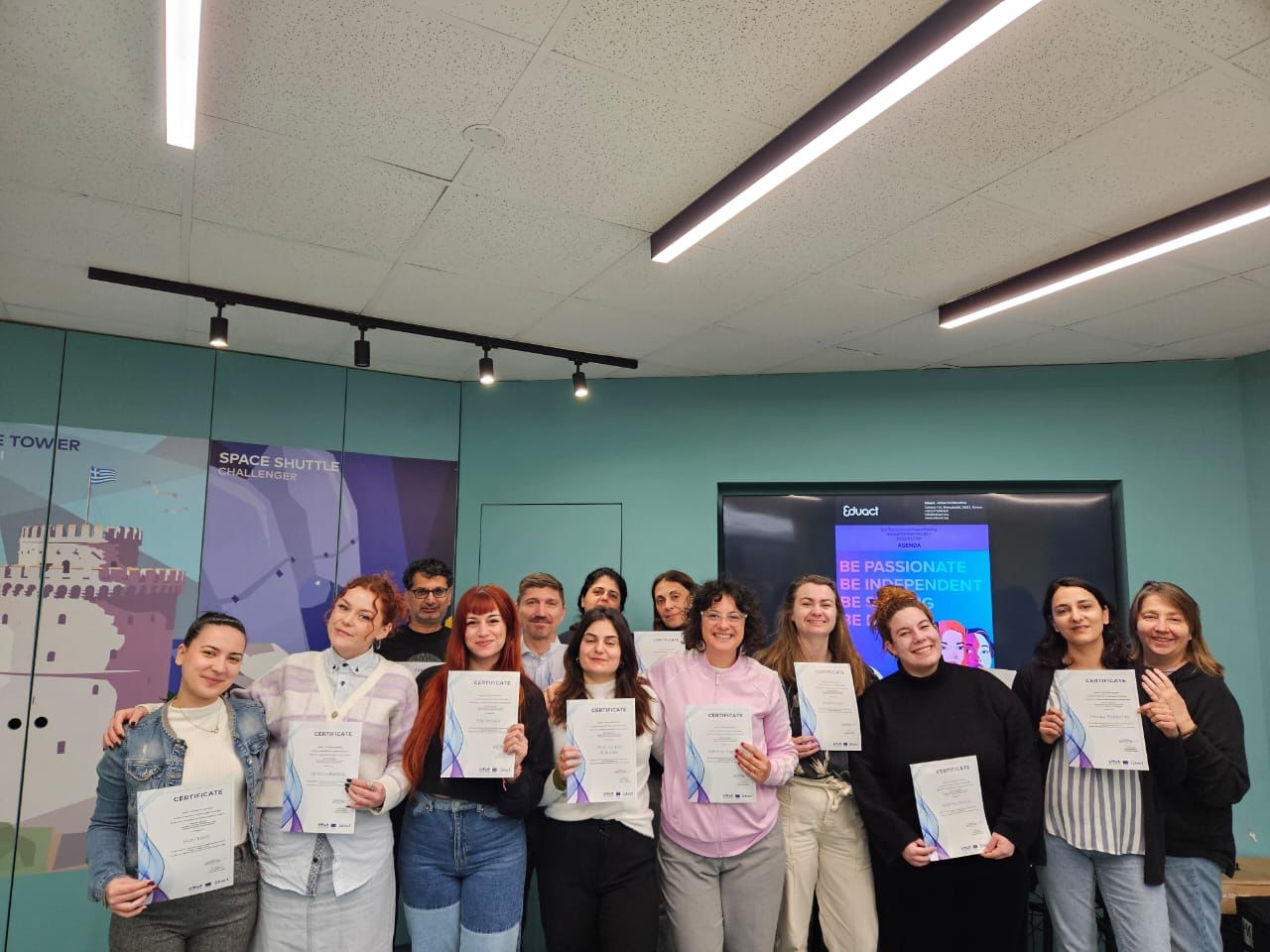
To stay updated on project developments, please visit the project website and social media pages (Facebook and Linkedin).
TourXpeRience Kick-off meeting
The TourXpeRience kick-off meeting took place in Palermo, Italy, on March 12-13, 2025.
The project is cofunded by the Erasmus Plus Programme (CoVe).
The main goal of the project is to modernise vocational education and training (VET) in the tourism sector through the application of XR (Extended Reality) technologies, including AR (Augmented Reality), VR (Virtual Reality), and MR (Mixed Reality). These technologies have demonstrated significant educational benefits, particularly in the wake of the COVID pandemic, by enabling the integration of digital content with real-world environments, thereby enhancing the quality and immersion of learning experiences.
The tourism sector often lacks formal training requirements, which creates the need for new, structured and ongoing education. The rapid evolution of the state of the industry necessitates continuous updates to training methods to keep pace with new technologies and trends. Additionally, there is a pressing need to adopt sustainable practices to balance environmental, economic, and social interests and futures.
Through the incorporation of XR technologies, the project seeks to update VET curricula, provide essential training resources, and equip students with the skills, digital competencies, and environmental awareness required for leadership in sustainable tourism. By fostering collaboration among educational institutions, industry representatives, and policymakers, the project aims to mitigate adverse socio-cultural, economic, and environmental impacts of the tourism sector while enhancing its competitiveness.
The project is coordinated by CEIPES from Italy (Palermo). Twenty other organizations are also involved: Learnable, ITET MARCO POLO, and ITS Turismo Marche from Italy, UPCT, SEF and CETEM from Spain, KIT, E.A.C.E and DATEY from Germany, VSGT, and RDAPM from Slovenia, WUAS from the Netherlands, IVEPE-SEV, INSETE from Greece, ETHP, and SHINE from Portugal, SGGW, IPHZR, and ITEE from Poland, and INTERSPREAD from Austria.
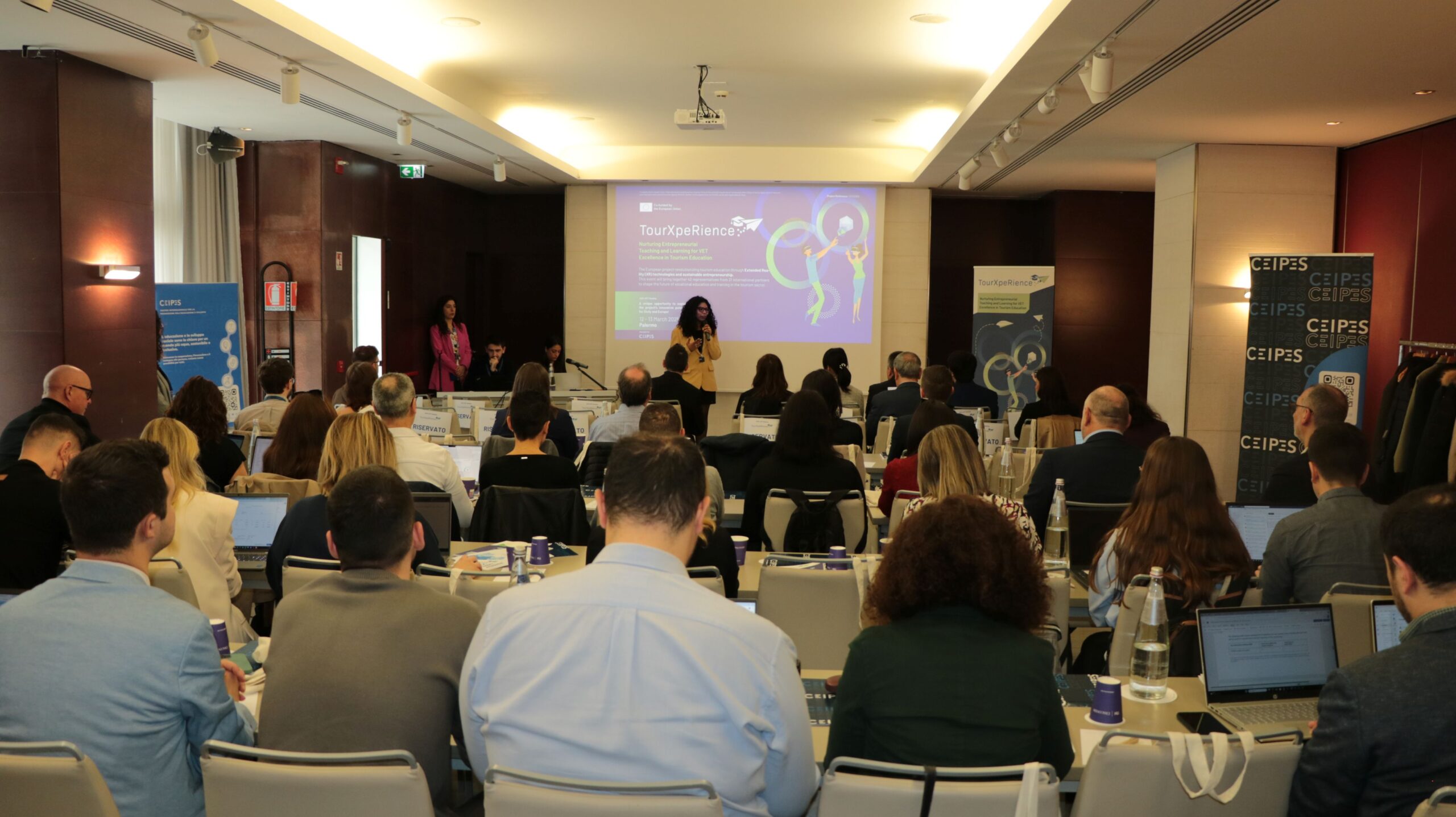
During the meeting, the partners had the opportunity to present their organisations and define the work plan for the coming months.
The topics discussed were as follows:
- WP2. Mapping of VET opportunities and labour market demand within the touristic sector
- WP3. Teacher training and capacity building: TourXpeRience Training Programme
- WP1. Project Management & Coordination
- WP11. Quality Assurance & Risk management
- WP4. Learner-Centred Design Methodology (LCDM) for XR exercises with educational purposes
- WP10. TourXpeRience Community Building and Sustainability
- WP9. Dissemination and Exploitation
iStream - Kick-off meeting
The iStream kick-off meeting took place in Ancona, Italy, on January 27-28, 2025.
The main goal of the project is to bridge the gap of competences in the use of immersive technologies in the media, journalism and communication sectors. It aims at improving the effectiveness of Higher education curricula thus reducing digital skills mismatch in the European media and communication sector.
The project wants to achieve the following specific objectives:
- To improve knowledge, skills and competences of curricula developers in order to develop and integrate academic training paths focused on immersive journalism.
- To improve knowledge, skills and competences of Higher Education teachers and trainers necessary to implement academic courses related to the profile of the immersive journalist.
- To raise awareness of the potential of the use of immersive technologies in the communication and media sectors.
The project is coordinated by UNIWERSYTET KOMISJI EDUKACJI NARODOWEJ W KRAKOWIE (UKEN) from Poland. Four other organizations are also involved: Learnable and Università Politecnica delle Marche from Italy, University of Nicosia from Cyprus, and Infinitivity Design Labs from France.
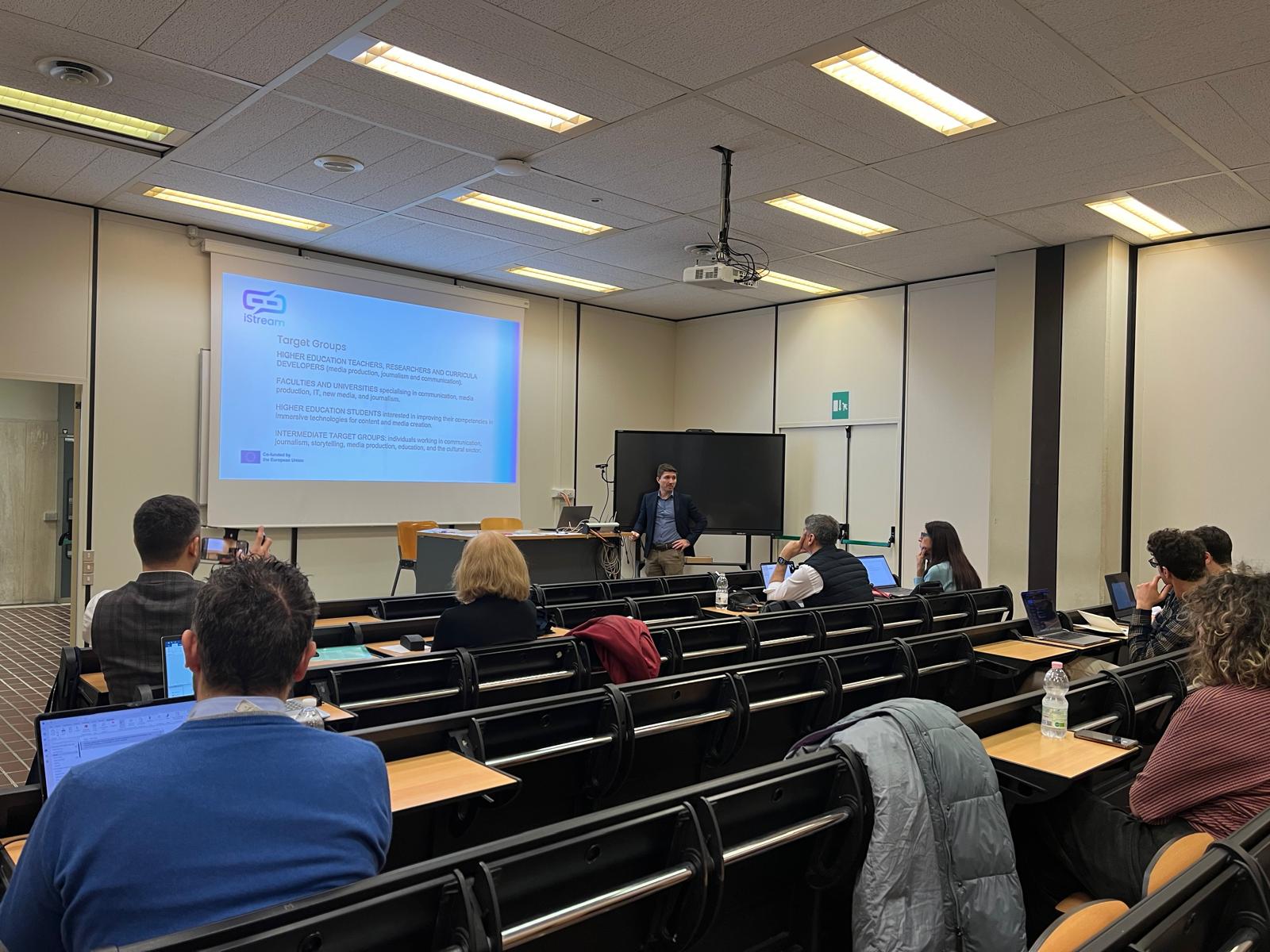
During the meeting, the partners had the opportunity to present their organisations and define the work plan for the coming months.
The topics discussed were as follows:
- Project Overview and Results, with a focus on the main results of the second work package, including:
- the production of the iStream Framework providing a clear immersive journalist profile described in terms of learning outcomes
- the production of the iStream CURRICULUM, providing a one-year university study track on immersive journalism implementable as a specialisation year for BA students, one year MA programme and postgraduate programme;
- Project Dissemination and Expected Outcomes
- Administrative and supporting documents that are required for successful project management and reporting
- Quality Assurance
The partnership will now be involved in validating the structure of the Trainer Platform, to start content production and layout work to have a draft version of the output ready by April 2025
To stay updated on project developments, you can visit the project website, Facebook Page and LinkedIn page.
FutureForward - Kick-off meeting in Fano
The FutureForward kick-off meeting took place in Fano, Italy, on January 19-20, 2025.
The main goal of the project is to support adult educators and learners (Target groups) to achieve basic digital skills to properly access and use AI tools in daily life and work.
In order to do that, the project wants to achieve the following specific objectives:
- To improve knowledge, skills and competences of adult educators in order to deliver effective and engaging basic training for adult learners, focused on AI tools.
- To improve knowledge, skills and competences of adult learners in order to enhance accessibility and safe use of AI-based services.
The project is coordinated by Learnable from Italy. Four other organizations are also involved: Universitat de Valencia from Spain, Budakov Films from Bulgaria, Odpovědná společnost, z. s. (ReS) from Czechia and BERLINK ETN GMBH from Germany.
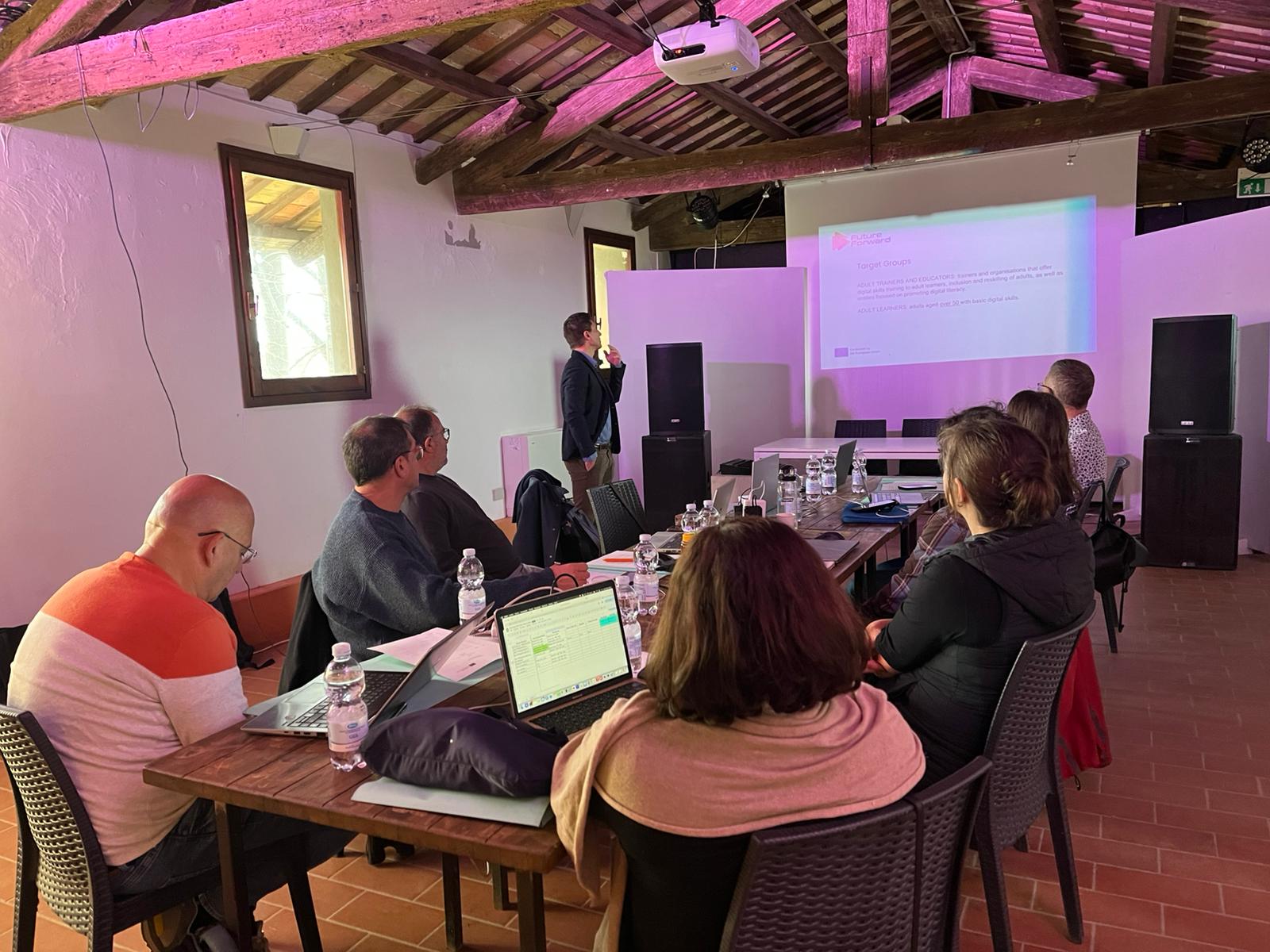
During the meeting, the partners had the opportunity to present their organisations and define the work plan for the coming months.
The topics discussed were as follows:
- Project Overview and Results, with a focus on the main results of the second work package, including:
- the production of the Trainer Platform, providing educators with an online environment, equipped with supporting materials and tools, necessary to implement, support, manage and assess effective training for adult learners on how to use AI tools in daily life and work.
- the organisation of the Transnational Course for adult educators to develop competencies for the implementation of basic training paths on AI for adult learners also using resources and materials included in the FutureForward Trainer Platform.
- Project Dissemination and Expected Outcomes
- Administrative and supporting documents that are required for successful project management and reporting
- Quality Assurance
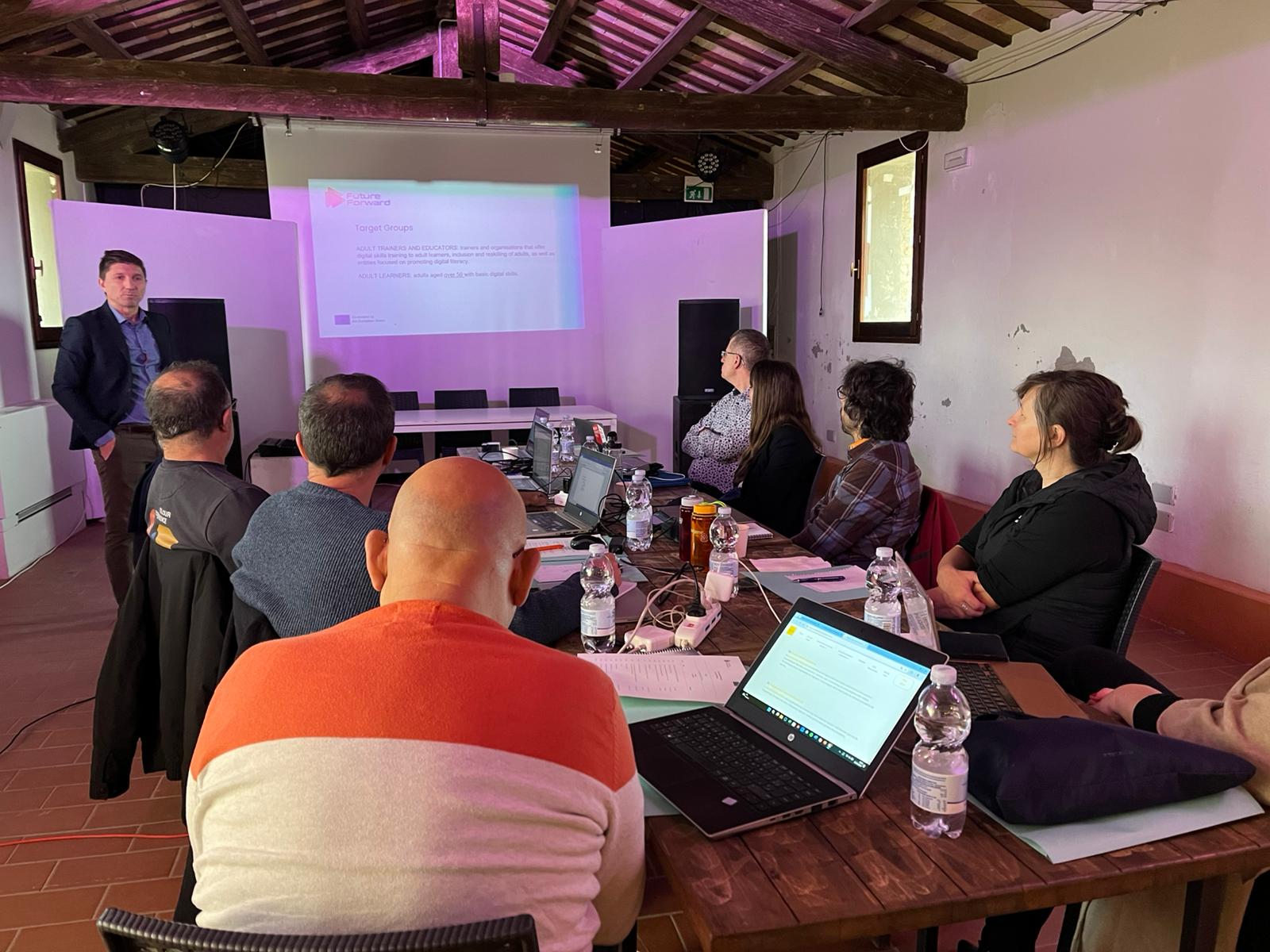
The partnership will now be involved in validating the structure of the Trainer Platform, to start content production and layout work to have a draft version of the output ready by April 2025
To stay updated on project developments, you can visit the project website and Facebook Page.
GreenInclusivitiy - Kick-off meeting in Prague
The GreenInclusivity kick-off meeting took place in Prague, Czechia, on December 2–3, 2024.
The main goal of the project is to raise awareness among adult educators about the connection between gender and the environment.
The project is coordinated by Gender Information Center Nora (GIC Nora) from Brno, Czech Republic. Three other organizations are also involved: Learnable from Italy, Czech Women’s Lobby (CWL) from Czechia, and EnviroStopa from Slovakia.
During the meeting, the partners had the opportunity to introduce their organizations and share the expertise they bring to the project.
The topics discussed were as follows:
- Project Overview and Results, with a focus on the main work packages, including:
- the production of the Analytical Report and Iconographics
- the production of Working Group related to Gender and Environment
- the production of a Methodological Guide for educators
- the production of a Community of practise
- Project Dissemination and Expected Outcomes
- Administrative and supporting documents that are required for successful project management and reporting
- Quality Assurance
Stay tuned! A dedicated project channel will soon be created, where updates and progress will be regularly shared.
DiTwin - Second Transnational Project Meeting
The second transnational meeting of the DiTwin project, coordinated by Learnable and organized by the Uniwersytet Komisji Edukacji Narodowej w Krakowie, was held in Krakow on November 14th and 15th.
All project partners participated in the two-day meeting, collaborating on key topics from the agenda. Discussions covered project activities, including Management, Dissemination, and Quality Assurance.
The team also focused on:
- the results of WP2 Modules (Modules and Platform production), and the upcoming activities within this work package (DiTwin Multiplier Event)
- the start of the WP3 BACKPACK (DiTwin Handbook, Demo Event and DiTwin Video Tutorial production), and the Transnational Training Course foreseen in Malaga for July 2025.
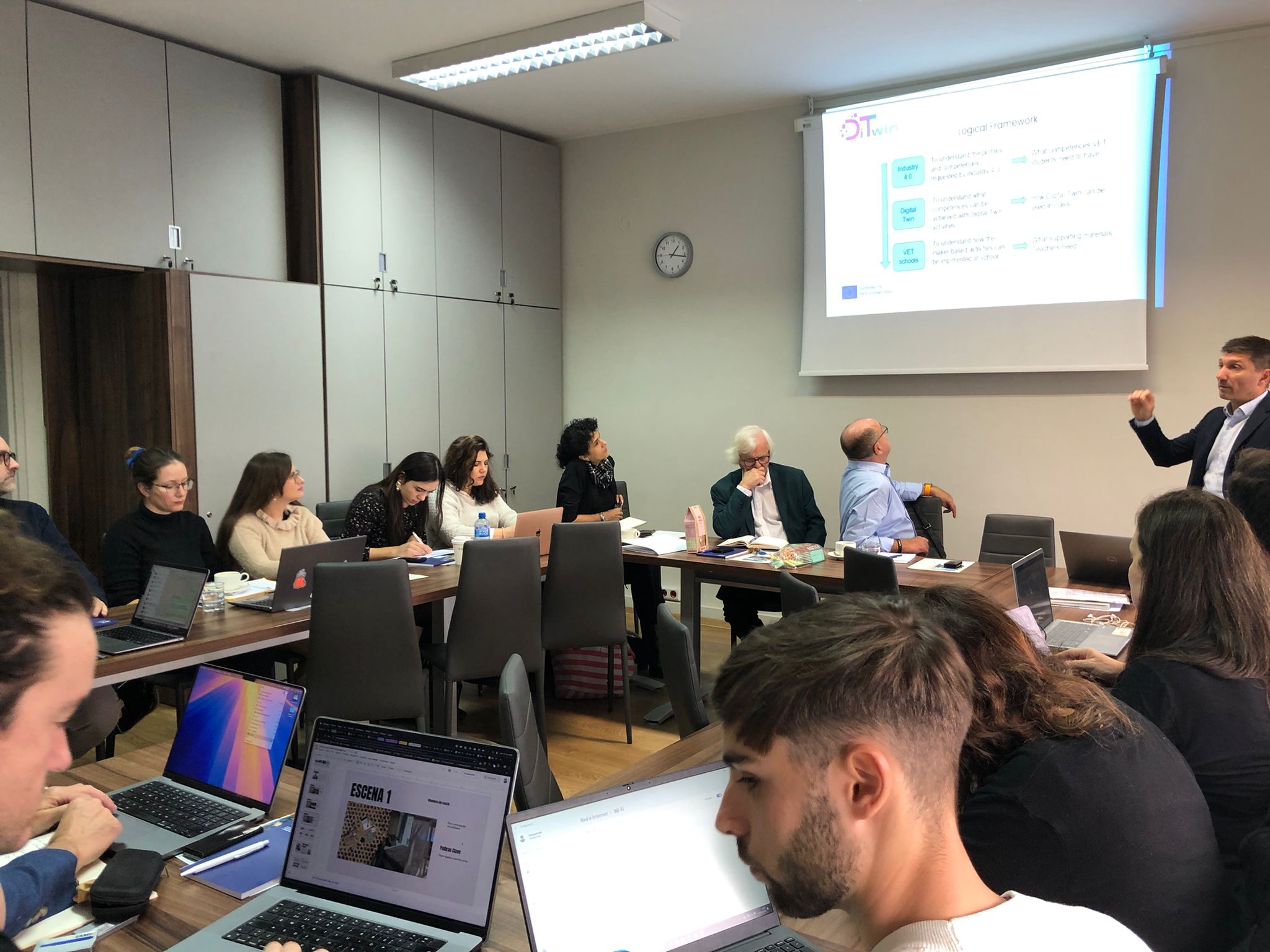
The University of Malaga and Digital Smart, the project’s technical partners, presented the DiTwin Modules Demonstration to all partners as part of the meeting. This demonstration showcased the Digital Twins (digital simulations linked to physical machines) integrated into a modularised path.
To stay updated on project developments, please visit the project website and social media pages (Facebook and Linkedin).


